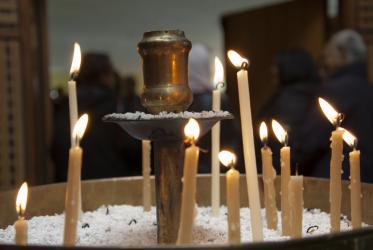Displaying 1 - 20 of 29
G20 summit: call to pray for peace in Hamburg
07 July 2017
Land rights focus of panel discussion
17 November 2015
Réunions-débats consacrées aux droits fonciers
17 November 2015
Joint efforts to fight violence against children
18 June 2015
WCC Executive Committee speaks out on migrant crises
12 June 2015






